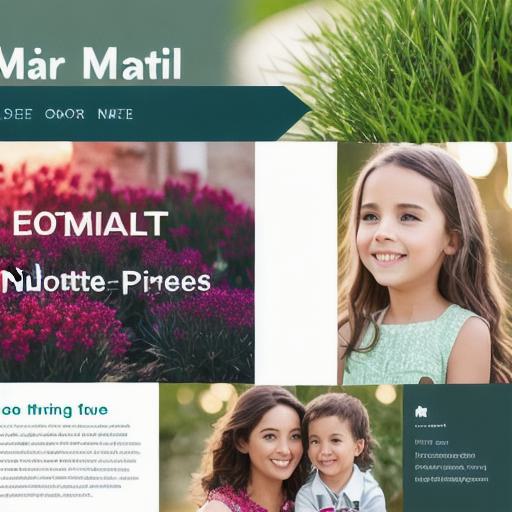The hotel industry is highly competitive, with many hotels vying for the same customers. To stand out from the crowd and attract more guests, you need to invest in effective marketing tools. In this guide, we’ll explore some of the most popular and effective marketing strategies for hotels, along with tips and best practices for implementing them successfully.
- Social Media Marketing: Boost Your Guest Engagement
Introduction
Social media platforms such as Facebook, Instagram, Twitter, and TikTok have become essential tools for hotels to connect with their customers and promote their brand. By creating a strong presence on these platforms, you can increase your hotel’s visibility, engage with potential guests, and build relationships with current customers.
Benefits of Social Media Marketing
-
Increased guest engagement: Social media allows you to interact with guests before, during, and after their stay at your hotel. By responding to comments and messages promptly, you can build a positive reputation for your hotel and show that you value your guests’ opinions.
-
Improved brand awareness: Social media platforms have billions of active users, making them an excellent way to reach new customers. By sharing engaging content and participating in online conversations, you can increase your hotel’s visibility and attract more guests.
-
Cost-effective marketing: Social media advertising is often less expensive than traditional advertising methods such as TV or print ads. With the right social media strategy, you can reach a large audience with minimal investment.
Tips for Successful Social Media Marketing
-
Create a content calendar: Plan out your posts in advance to ensure that you’re consistently publishing engaging and relevant content. This will help keep your guests interested and coming back for more.
-
Use visuals: Visual content such as photos and videos are more likely to capture your guests’ attention than text-based posts. Consider investing in professional photography or videography to showcase your hotel’s amenities and unique features.
-
Engage with your audience: Respond to comments and messages promptly, and consider running contests or giveaways to encourage engagement. By building relationships with your guests, you can create a loyal base of customers who will recommend your hotel to their friends and family.
- Email Marketing: Build Strong Relationships with Your Guests
Introduction
Email marketing is a powerful tool for hotels to build strong relationships with their guests and keep them informed about promotions, special events, and other news. By collecting email addresses from your guests, you can create personalized messages that resonate with them and encourage repeat bookings.
Benefits of Email Marketing
-
Cost-effective: Email marketing is often less expensive than other forms of advertising, making it an excellent option for smaller hotels or those with limited budgets.
-
High ROI: Email campaigns can generate a high return on investment (ROI), with many guests taking advantage of promotional offers and booking additional rooms or services.
-
Personalized communication: By collecting email addresses from your guests, you can create personalized messages that speak to their interests and preferences. This will help build stronger relationships with them and increase the likelihood of repeat bookings.
Tips for Successful Email Marketing
-
Build an email list: Offer incentives such as discounts or free upgrades in exchange for guests’ email addresses. You can also collect email addresses through online surveys or sign-up forms on your hotel’s website.
-
Segment your email list: Divide your email list into smaller groups based on guest interests or behavior, and tailor your messages to their needs. For example, you might send promotional offers for spa treatments to guests who have previously booked a spa package.
-
Use automation: Consider using automated email campaigns to follow up with guests after they book a room, thank them for their stay, or provide updates on special events or promotions. This will help keep your communication consistent and timely.
- SEO Optimization: Boost Your Hotel’s Online Visibility
Introduction

Search engine optimization (SEO) is the practice of optimizing your website and its content to rank higher in search engine results pages (SERPs). By improving your website’s visibility, you can attract more guests who are searching for hotels in your area.
Benefits of SEO Optimization
-
Increased traffic: By ranking higher in SERPs, you’ll attract more clicks and visits to your hotel’s website. This will help drive more bookings and increase revenue.
-
Improved brand awareness: Appearing at the top of search engine results can help increase your hotel’s visibility and establish it as a reputable and trusted option for guests.
-
Cost-effective marketing: Unlike paid advertising, SEO is a long-term strategy that can provide ongoing benefits without incurring additional costs.
Tips for Successful SEO Optimization
-
Conduct keyword research: Identify the keywords and phrases that potential guests are using to search for hotels in your area. Use these keywords throughout your website’s content to help improve your search engine rankings.
-
Create high-quality content: Your hotel’s website should be filled with engaging and informative content that provides value to guests. Consider including information about your hotel’s amenities, location, and surrounding attractions.
-
Optimize images and videos: Use descriptive file names and alt tags for images and videos on your website to help them rank higher in search engine results.
- Pay-Per-Click Advertising: Targeted Marketing for Hotels
Introduction
Pay-per-click (PPC) advertising is a form of online advertising where advertisers pay each time an ad is clicked on. PPC allows hotels to target specific audiences and drive traffic to their website with a high level of accuracy.
Benefits of PPC Advertising
-
Highly targeted: PPC advertising allows you to target specific keywords, locations, and demographics, ensuring that your ads are shown only to the people who are most likely to be interested in your hotel.
-
Cost-effective: Unlike traditional advertising methods such as TV or print ads, PPC advertising allows you to set a budget and only pay when someone clicks on your ad. This makes it an excellent option for smaller hotels with limited budgets.
-
Measurable results: With PPC advertising, you can track the performance of your ads in real-time, allowing you to adjust your campaigns for better results.
Tips for Successful PPC Advertising
-
Set clear goals: Determine what you want to achieve with your PPC advertising campaign, whether it’s increasing bookings or driving website traffic, and set clear goals that align with those objectives.
-
Conduct keyword research: Identify the keywords and phrases that potential guests are using to search for hotels in your area. Use these keywords throughout your ad copy and landing pages to help improve your ad relevance and click-through rates.
-
Test different ad formats: Experiment with different ad formats, such as text ads, image ads, and video ads, to see which ones perform best with your target audience.
-
Monitor campaign performance: Track the performance of your PPC campaigns regularly and make adjustments as needed based on your goals and results.
- Referral Marketing: Leverage Your Guests’ Networks
Introduction
Referral marketing is the practice of encouraging guests to recommend your hotel to their friends, family, and colleagues. By leveraging the power of word-of-mouth marketing, you can attract new customers who are already familiar with your hotel and its offerings.
Benefits of Referral Marketing
- Highly cost-effective: Unlike paid advertising, referral marketing is a low-cost way to attract new customers who are already interested in your hotel.
- Trusted marketing: Word-of-mouth recommendations from friends and family can be highly trusted and influential in guests’ decision-making process.
- Increased loyalty: By encouraging guests to recommend your hotel, you can build stronger relationships with them and increase their likelihood of returning for future stays.

Tips for Successful Referral Marketing
- Offer incentives: Consider offering incentives such as discounts or free upgrades in exchange for referrals from guests. This will encourage them to recommend your hotel to others and help attract new customers.
- Ask for reviews: Encourage guests to leave positive reviews of their stay on online review platforms such as TripAdvisor or Yelp. These reviews can be powerful marketing tools that help attract new customers and build trust.
- Follow up with guests: After a guest has booked a room, follow up with them to thank them for their business and ask if they know anyone who might also be interested in your hotel. This can help start the referral process.
- Conclusion
By implementing these marketing strategies, hotels can attract more guests, build stronger relationships with them, and increase revenue. Whether you’re looking to optimize your website for search engines, target specific audiences with PPC advertising, or leverage the power of word-of-mouth marketing, there are many ways to promote your hotel and drive bookings.




